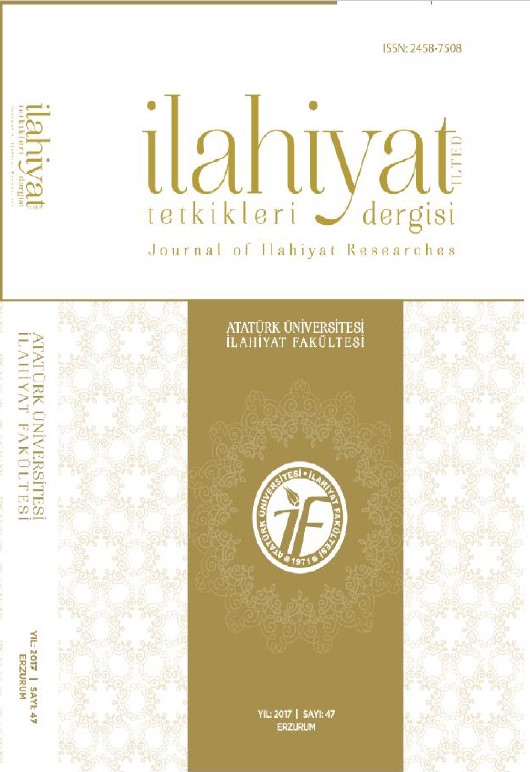16. Yüzyıl Osmanlısında Kur’ân Okuma Karşılığı Ücret Alma Tartışmaları: Birgivî Zeyrekzâde Örneği
The Discussions of Reading the Quran for a Fee in the 16th Century Ottoman: The Example of Birgivi Zayrakzāda
Author(s): Abdullah KavalcıoğluSubject(s): Islam studies, 15th Century, 16th Century, The Ottoman Empire, Hermeneutics, Sharia Law
Published by: Atatürk Üniversitesi İlahiyat Fakültesi
Keywords: Islamic Law; Money foundations; Fee; Qur'ān; Birgivī; Zeyrekzāda;
Summary/Abstract: One type of the pious foundations which subsisted from the fifteenth century until the collapse of the empire in the Ottoman Empire, which is described as a civilisation of foundation, is the money foundations. Among these money foundations, there are foundations established for the recitation of Qur’an. These foundations, like the others, had subsisted till the collapse of the Ottoman Empire, but discussions about them continued. One of the works which discusses the recitation of Qur'ān for a fee is the epistle named as “İnkāzü’l-hâlikîn” written by Birgivī Mehmed Efendī (d. 1573). He alleges in this epistle, which is well known among the modern researchers and about which there are some studies, that the recitation of Qur’an for a fee is not licit. This epistle is not only discussed today, but at the time it was written it had been discussed among the scholars. For example, Zeyrekzāda Emrullah al-Husaynī had written a refutation titled as “Risala fi cavazi akhzi’l-ucrati li-qıraati’l-Qur’an” against the epistle of Birgivi. Also, this is very rare work that discussed widely with the proofs that the recitation of Qur'ān is licit. In this article, the views of two authors will be treated comparatively only in terms of common points. The aim of this study is to discuss the juridical issue which has a social aspect from the view of two authors that have different approaches.
Journal: İlahiyat Tetkikleri Dergisi
- Issue Year: 2020
- Issue No: 54
- Page Range: 303-328
- Page Count: 26
- Language: Turkish

